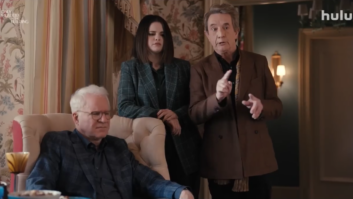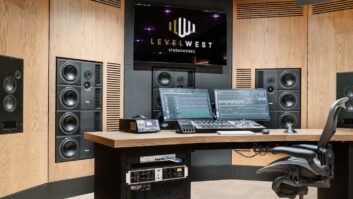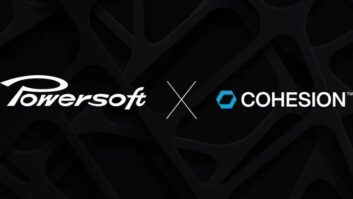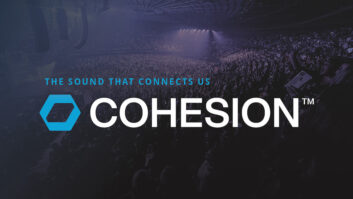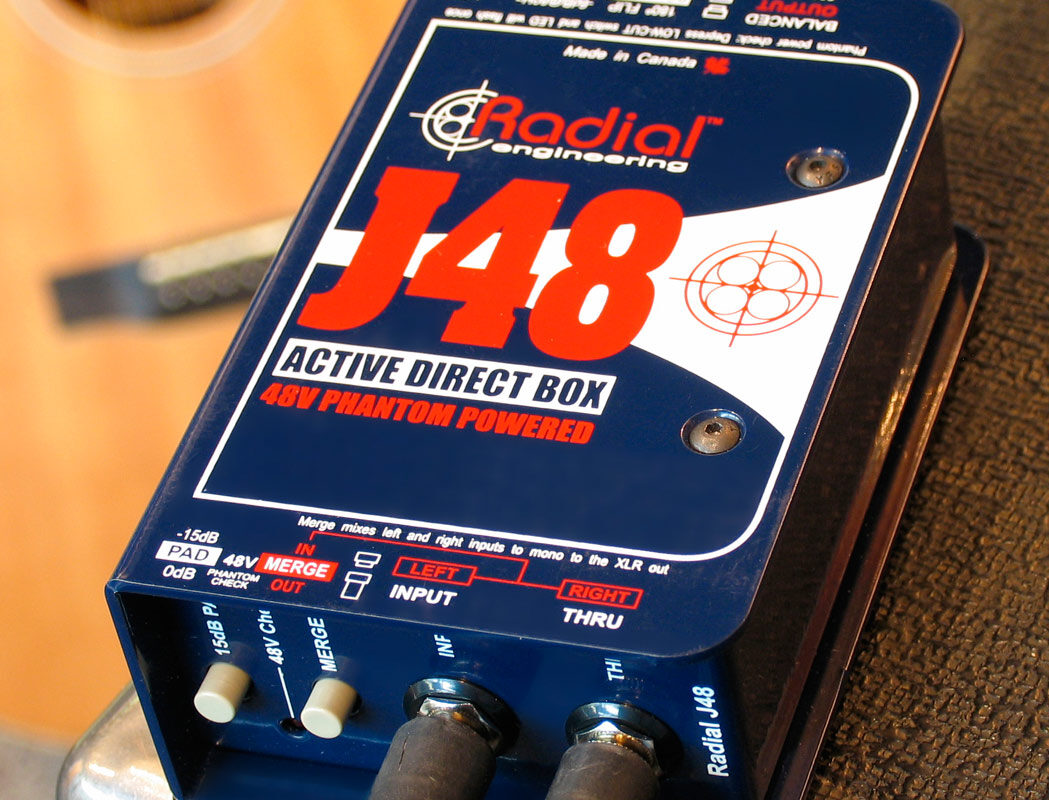 By 2001, we had replaced the Radial JDI’s aluminum channel with the bookend design that is the hallmark of Radial’s many direct boxes and interfaces. We had also purchased a brilliant circuit design from a fellow in Toronto for the Radial J48 active DI. What made it unique was that it employed a switching power supply that both increased the dynamic range and enabled the ground lift switch to work without reverting to a battery. (As we all know, batteries always go dead at the most inopportune time.)
By 2001, we had replaced the Radial JDI’s aluminum channel with the bookend design that is the hallmark of Radial’s many direct boxes and interfaces. We had also purchased a brilliant circuit design from a fellow in Toronto for the Radial J48 active DI. What made it unique was that it employed a switching power supply that both increased the dynamic range and enabled the ground lift switch to work without reverting to a battery. (As we all know, batteries always go dead at the most inopportune time.)
With the J48 ready to hit the market, we had tests done at Bryan Adams’ famous Warehouse Studio using their Audio Precision system that compared the J48 to other well-known brands. This resulted in a document called the Blue Report that essentially compared DI boxes under various conditions covering all types of distortion factors. People tend to believe the written word, so a test report is a powerful sales tool. With the Blue Report in hand, making a sales presentation that convinced the customer our product was better was straightforward.
One day, while visiting Clair Brothers, I did my sales pitch to Stan Horine, the buyer. After going through it and showing him the Blue Report, he said: “Your boxes look great!” I replied, “Fantastic. How many can I ship you?” He said, “None.” I retorted, “None? Our DI boxes have less distortion, greater headroom and they will make your P.A. systems sound better. Why none?” He said, “Peter, we are a rental company. If someone asks for your products, we will order them in.”
The Aha Moment was clear: We had to create demand.
As Radial was relatively unknown, we began our “mission” by going to the rehearsal spaces in Nashville and lending them direct boxes for their clients while rehearsing for concert tours. Once things got going, we then began to target other popular rehearsal spaces around the U.S. We then teamed up with retailers like Tour Supply to close the loop. Not only did Radial quickly find its way onto riders, but we began to gain backstage access when concerts came through Vancouver; this gave us the opportunity to speak with the techs where we would arrange loaners. As techs move from one show to another, it wasn’t too long before Radial found its way onto even more riders and in some cases, open discussions for endorsements.
A few years later, while reading Malcolm Gladwell’s The Tipping Point, I discovered that what we were doing was essentially what he was professing as the best way to increase product acceptance in the market. By convincing market leaders—in our case, audio engineers and guitar techs—that our product offered a better solution, they became advocates for our products and continued to use them when future opportunities arose. Further, once trust was established, they would call us with suggestions for fixes or new product ideas.
As momentum grew, we created a list of clients for our website and then printed a laundry list of the most notable artists in our “Thank You” ads. These would be published in various trade magazines in January and February issues, and served to thank the artist for their support and create the sense of their being part of a winning team. It also served as a reminder for tour managers to ensure Radial was on the rider. This added to the momentum as more and more new artists took on Radial. It was always fun to scan the Centerstage chart in Pro Sound News to see how many acts had our gear on their stage. Most often, eight out of 10 would list Radial and in most cases, the missing two simply did not list accessories. I recently read Shoe Dog by Nike’s CEO Phil Knight, and he often cites being excited when he would see athletes sporting a pair of his shoes. I can totally relate.
I also recall getting a call from Jack Boessneck, operations manager at Eighth Day Sound. Jack said, “Peter, we have a problem.” Of course, I had no idea what the problem could be, so I put on my best game-face and replied, “What is it? What can I do to help?” He said: “I have hundreds of your competitors’ direct boxes in stock, but nobody wants to rent them. They are all asking for Radial.” I said: “Easy, put them on eBay.” Jack ordered another 100 direct boxes and has been a huge supporter ever since.
Peter Janis, former CEO of Radial Engineering, is a 40-year veteran of the music industry. Exit Plan, his consulting firm, assists business owners on building their companies and preparing them for eventual sale.



